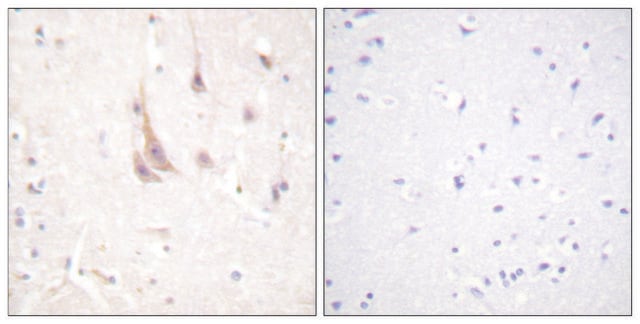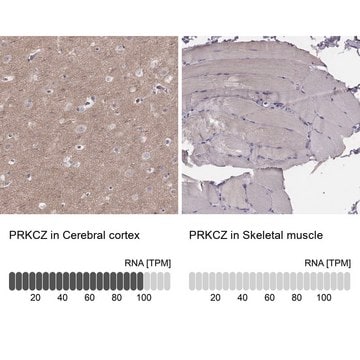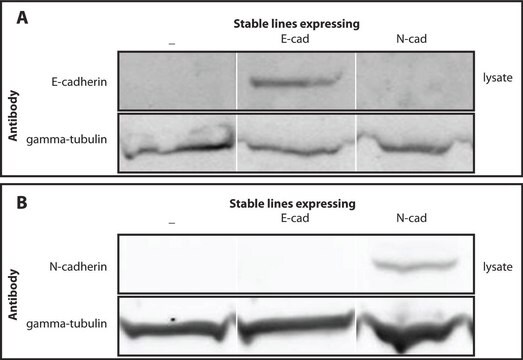MABC946
Anti-PKCζ Antibody, clone 14B12.3
clone 4B12.3, from mouse
Sinônimo(s):
Protein kinase C zeta type, nPKC-zeta, PKC-zeta, PKCζ
About This Item
Produtos recomendados
fonte biológica
mouse
Nível de qualidade
forma do anticorpo
purified immunoglobulin
tipo de produto de anticorpo
primary antibodies
clone
4B12.3, monoclonal
reatividade de espécies
mouse, human, rat
técnica(s)
immunohistochemistry: suitable (paraffin)
western blot: suitable
Isotipo
IgG1κ
nº de adesão NCBI
nº de adesão UniProt
Condições de expedição
wet ice
modificação pós-traducional do alvo
unmodified
Informações sobre genes
human ... PRKCZ(5590)
mouse ... Prkcz(18762)
rat ... Prkcz(25522)
Categorias relacionadas
Descrição geral
Especificidade
Imunogênio
Aplicação
Apoptosis & Cancer
Apoptosis - Additional
Immunohistochemistry Analysis: A 1:250 dilution from a representative lot detected PRKCZ in human cerebral cortex, human cerebellum and mouse brain tissues.
Qualidade
Western Blotting Analysis: 0.5 µg/mL of this antibody detected PKCζ in 10 µg of mouse brain tissue lysate.
Descrição-alvo
forma física
Armazenamento e estabilidade
Outras notas
Exoneração de responsabilidade
Não está encontrando o produto certo?
Experimente o nosso Ferramenta de seleção de produtos.
Código de classe de armazenamento
12 - Non Combustible Liquids
Classe de risco de água (WGK)
WGK 1
Ponto de fulgor (°F)
Not applicable
Ponto de fulgor (°C)
Not applicable
Certificados de análise (COA)
Busque Certificados de análise (COA) digitando o Número do Lote do produto. Os números de lote e remessa podem ser encontrados no rótulo de um produto após a palavra “Lot” ou “Batch”.
Já possui este produto?
Encontre a documentação dos produtos que você adquiriu recentemente na biblioteca de documentos.
Active Filters
Nossa equipe de cientistas tem experiência em todas as áreas de pesquisa, incluindo Life Sciences, ciência de materiais, síntese química, cromatografia, química analítica e muitas outras.
Entre em contato com a assistência técnica








